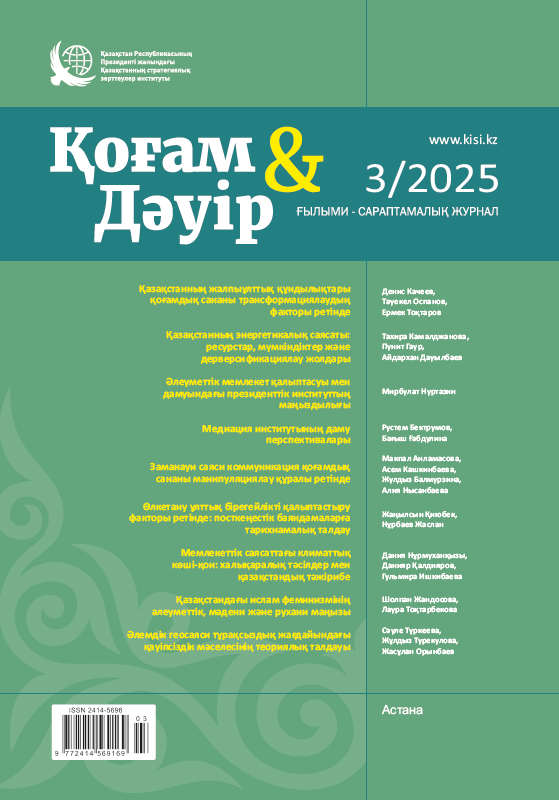Abstract
This scientific article is devoted to a comprehensive study of the social, cultural and spiritual aspects of Islamic feminism in Kazakhstan. The relevance of the research is determined by the importance of understanding the relationship between religious identity and gender equality in modern Kazakh society. The main purpose of the article is a comprehensive analysis of the position and role of Muslim women in the modern society of Kazakhstan, their rights and opportunities. The methodological basis of this research is based on the integrated application of general scientific, special and theoretical-methodological approaches. Dialectical, systematic analysis and comparative historical methods were used as general scientific methods, which allowed us to study the patterns of development of Islamic feminism in Kazakh society, its features as a socio-cultural phenomenon and the stages of its formation. Among the special methods used were discourse analysis and the phenomenological method, aimed at studying public discussions about Islamic feminism and a deep understanding of the religious experience of Muslim women. The article examines the theoretical and methodological foundations of Islamic feminism and defines its features in the Kazakh context. The study comprehensively analyzed the patterns of development of Islamic feminism in Kazakh society, its compatibility with traditional religious values and its impact on modern social changes. The article describes the Kazakh model of Islamic feminism, the features of its formation as a synthesis of traditional Islamic values and modern feminist ideas. The conclusions and conclusions presented in the article are of practical importance in the study of gender equality issues, the formation of social policy and religious and cultural research.


